Understanding Tinnitus: The Ringing in Your Ears
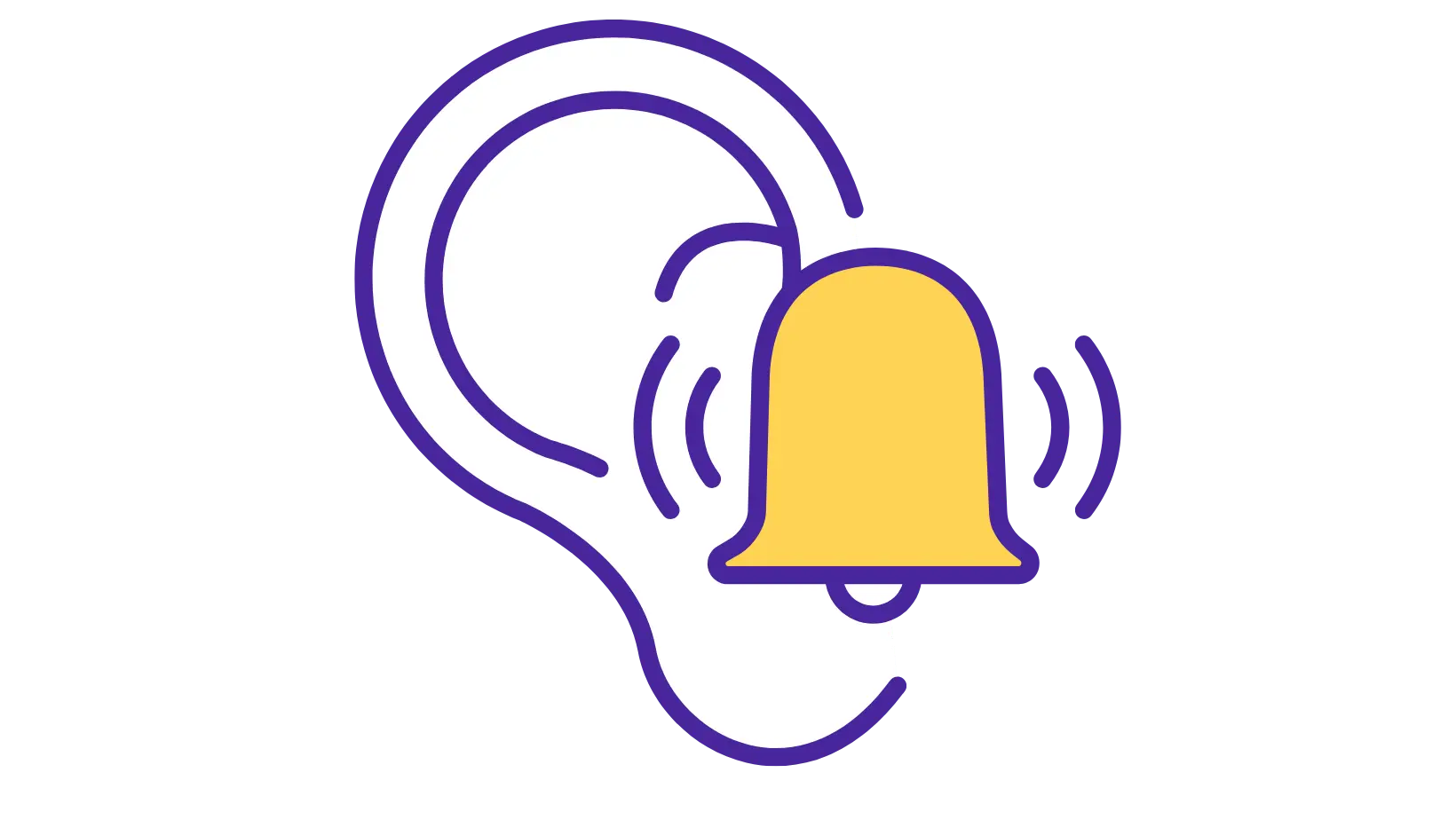
On This Page
What is Tinnitus?
- What’s going on in your body?
- Will tinnitus go away?
Hearing and Tinnitus
- The Process of Hearing
- How the hearing process can be damaged to cause tinnitus
Types of Tinnitus
- Subjective Tinnitus
- Objective Tinnitus
- Pediatric Tinnitus
- Pulsatile Tinnitus
What are the Symptoms of tinnitus?
- What are the first signs of tinnitus?
- When to see an audiologist about tinnitus
What are the Causes of Tinnitus?
- Sound Exposure
- Medication
- Impacted Earwax (Cerumen)
- Aging
- Menire’s Disease
How is tinnitus treated?
- Tinnitus Treatment
Managing Tinnitus
- Sound Therapy
- Hearing Aids
- Media
- Psychological Effects & Counseling
- Tinnitus Retrainng Therapy (TRT)
- Hyperacusis
- Medications for Tinnitus
- Neuromodulation
- Self Care for tinnitus
- What should i avoid if I have tinnitus?
Resources and Support
Stay Tuned Hearing Clinic
FAQ – Frequently Asked Question
Before We Start
I want to get in early before you read on, to say that YOU ARE NOT ALONE!
Many people deal with managing tinnitus and live a happy fulfilling life!
You may feel at this moment that the ground has been taken from under your feet, but I assure you that things will get better. If not physiologically, then emotionally and mentally. It is a challenging thing to find out that you have tinnitus but there are a lot of people who have felt just as you do now and have gone on to live normal lives. I will speak more on this later on down the page, plus give some tips to help you along!
But, for now, let’s get into finding out about hearing loss and tinnitus.
What is Tinnitus? (What is that ringing in my ears?)
In its essence… Tinnitus is a sound (most commonly a ringing sound) that is ‘heard’ but has no physical source in the real world outside of your own body. This sound can be heard in one or both ears.
If you ask five people what tinnitus sounds like, you may get five different answers.
Tinnitus can produce differing sounds for different people, and a varied spectrum of pitch or volume. For some, it drowns out traffic as they walk beside a freeway, and for others, they only suffer its ringing in the silence of night. Some people have intermittent noise, for others it is constant. Some have triggering circumstances, and for others, the condition flares up at totally random times.
You see… tinnitus is a varied and strange beast. Much is unknown, and unfortunately, once you have it, it’s about management more than any treatment to cure the condition. But there are instances where it can be medically related to something going on in your body, and possibly treated.
Through this page, we will look into what is really going on and what we know so far as to the physical reasons doctors and scientists believe cause the condition.
It is estimated that 24.8% of the Australian workforce suffer from tinnitus, that’s a whopping 2.4 million workers!
So, Stay Tuned, and let’s take a deep dive into Tinnitus!

What's going on in your body?
So first off, I want to go into what is going on physically in the body.
I know, I know. It’s early and we are getting into the science behind it all, booorring! But it is a good idea to have an understanding of what is happening and how hearing works, and more importantly, how hearing is damaged on a physical level.
Will tinnitus go away?
Ultimately, tinnitus may not start with your brain, but that is where it ends and produces the ringing in ears that we know as tinnitus (unless it is objective tinnitus as described below).
The brain is a malleable and adaptive beast. If you have ever heard the term neuroplasticity, then you may know how the brain can adapt and reconfigure around trauma. The reconfiguration is usually quite a slow process. So it is with time, and some effort to some of the more mental management options suggested later on that you can encourage your brain’s neuroplasticity to reduce the impact of tinnitus based noise in the ears.
This is not a cure. This will not regenerate the damage that causes hearing loss and tinnitus but it will train your brain to perhaps take less notice, and if you are truly lucky (or work hard at it!) make it hardly noticeable.
To understand how this process ends with the brain, we first need to understand how hearing works in the body…
Hearing and Tinnitus
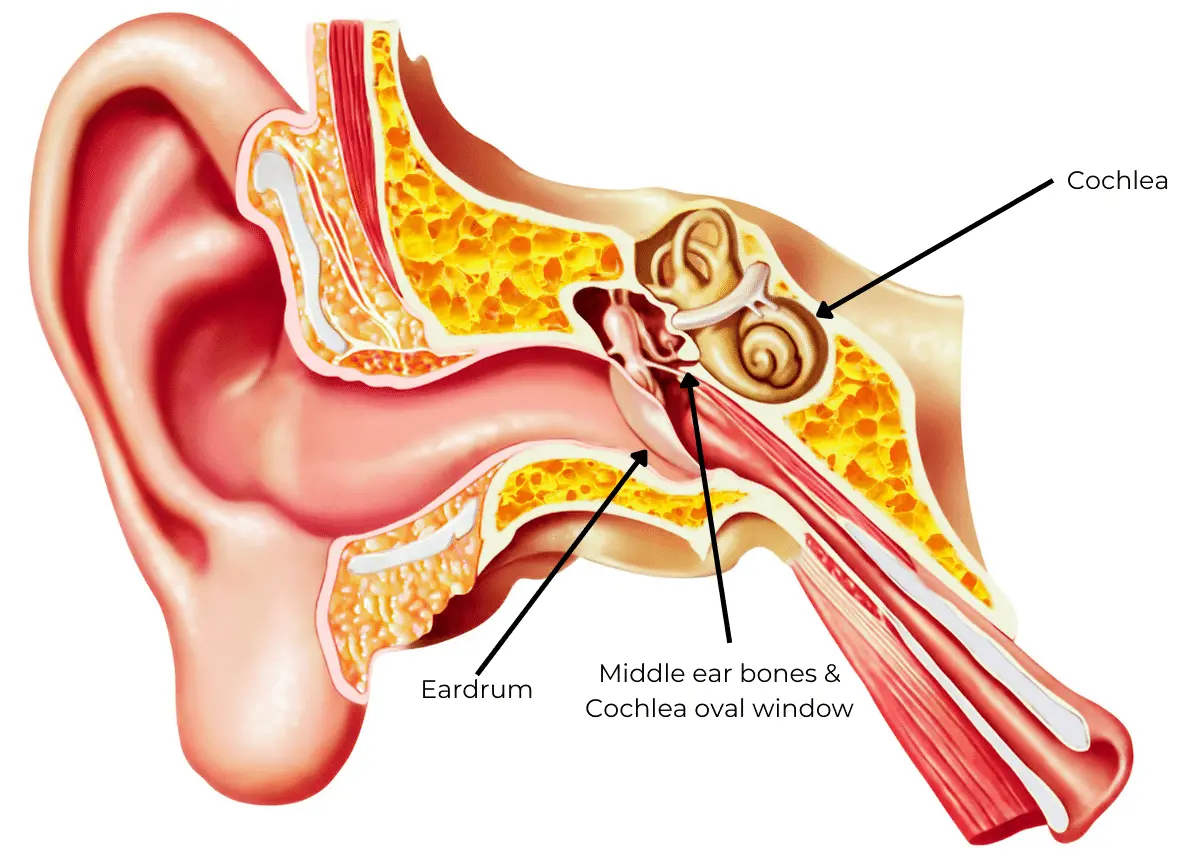
The Process of Hearing
Prefer a video? Check out this one from the National Institute of Health Journey of Sound to the Brain
- Sound is created causing vibrations in the air around you.
- Sound waves reach your outer ear which funnels the sound into the ear canal.
- The sound travels through the ear canal and reaches the thin membrane known as the eardrum, causing it to vibrate at the same frequency that the sound was emitted.
- The vibrations of the eardrum then pass to three very delicate and tiny bones in the middle ear to the cochlea. A complex thing happens here: The amplified sound is transferred into force by the bones which use a lever-like action on the oval window to the cochlea (think drummer’s foot pedal). This change is necessary because the cochlea is filled with liquid, and if the vibrations in the air were to just pass on from the eardrum to the cochlea without the highly specified bones that transfer air vibrations to force on the cochlea oval window it would mostly reflect off the liquid surface, and result in very poor hearing to none.
5. Next, the force that is created by the bones on the cochlea window causes pressure waves through the fluid of the cochlea (that snail shell-looking thing in the picture over there). It is here that we come across the cochlea ‘hairs’ (stereocilia) which move from the pressure waves created by the inner ear bones on the cochlea oval window.
6. When the hairs move, they transmit ions causing a chemical reaction at the base of the hairs. Note: Only certain hairs will move that match the frequency of the sound being transmitted. The larger circled area of the cochlea for high pitches, the smaller top circled area for lower.
7. This chemical reaction at the base of the stereocilia then interacts with the auditory nerve to transmit electrical signals that travel along the auditory nerve straight to the brain. There the signals are interpreted by the auditory cortex as the sounds we are familiar with, such as a horn, a car, or a bird.
OK, so you now have an understanding of how hearing works, and its delicate complexity. Now let’s get into how this relates to tinnitus, and how that process can be damaged to result in the condition.
How the Hearing Process can be Damaged to Cause Tinnitus
Okay, so now you know about stereocilia, the hairs within the inner ear. The human cochlea contains around 3,500 inner hair cells and as described above, you can now see how important a role these hair cells play in transmitting the signals from a heard sound to the brain.
There may be a part of you thinking that 3,500 is an abundance, but you may be shocked to find out that once they are damaged, there is no repairing or regenerating them. Once they are gone, they are gone. This is why it is so important (especially for young people) to know that if caution is thrown to the wind, this is not something that can be fixed later.
Noise-induced hearing loss (NIHL) is the most common reason for cochlea stereocilia damage, along with aging. But there are other ways that tinnitus can form, such as:
- Medication (Ototoxic Drugs)
- Earwax
- Trauma/Injury
- Ear Infections
- Blood Vessels
- Meniere’s Disease
- Acoustic Neuroma a.k.a. Vestibular Schwannoma (Benign tumor on the vestibulocochlear nerve)
- Migraines
- Moderate Vitamin B12 Deficiency
- Eustachian Tube Dysfunction (ETD)
- Temporomandibular Joint Disorders (TMD)
The volume on your device could be causing you hearing loss!

Some of the above causes can be permanent, or they can be treated to cure your tinnitus. It is a good idea to contact your local physician and audiologist to try and find out what exactly may be causing the condition, the sooner, the better.
Types of Tinnitus
You may see or hear about the different types of tinnitus. I’ve shown already how broad and varying the symptoms can be, but there will be a few categories that you will come across in your research. Let’s go through a brief explanation of these types to better understand them.
Subjective Tinnitus
Subjective tinnitus is when it is only something that you can hear, it is subjective to you alone. When an audiologist or physician tries to listen within the ear, there is not a sound that they can detect.
Even though the physician cannot hear the noise, it is still possible that an audiologist can find the possible cause based on history and examination. Such as an infection, or earwax buildup. This may require an audiogram (a hearing test using a pure tone assessment) and medical imaging.
It is common to find that there is hearing loss after an audiogram when you are experiencing a ringing in your ears. These things seem to go hand in hand. The theory is that when a frequency is lost by damage to the cochlea hairs, or by some other means, there is interference of the sounds signal being sent through the auditory nerve to the brain. The brain will then essentially turn up the gain on that frequency, trying to find the gap in the sound data it has received.
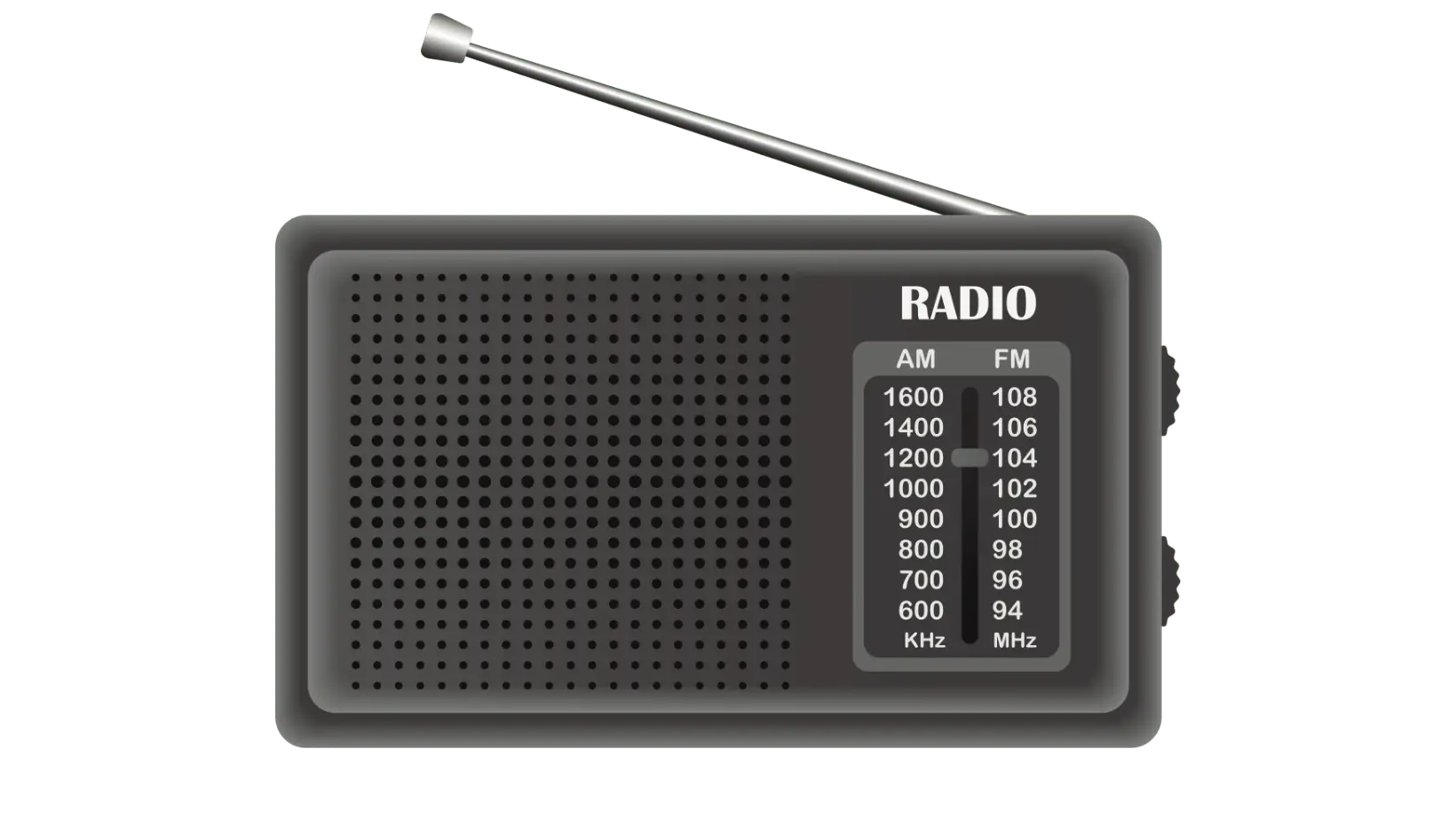
Objective Tinnitus
As you may already be aware, it can be hard to explain tinnitus to someone who does not experience it, and it can even feel like people do not believe you. They may even look at you like you are talking about seeing ghosts that they cannot see, especially if you do not have the science and explanations of what is happening. We hope that the information here will help with this!
So, objective tinnitus is different. This is a type of tinnitus that others can also hear the sounds that you are hearing. This is because the sounds are being created by functions in the body close to the ear, which is picking it up and putting through a signal to the brain. The problem is, there are no sounds externally around you.
The most common reasons for this are movements in the jaw structure and muscles or sounds caused by blood flow. This may end up in broadening your medical investigation to head and neck specialists.
Pediatric Tinnitus
As children develop their bodies go through change and this can result in some tinnitus. Usually, the type is called pulsatile tinnitus. It is important that if your child complains of tinnitus, you seek medical advice to reduce the risk of tinnitus as a long-term impairment.
Pulsatile Tinnitus
People with tinnitus of this type, experience a pulsing ringing sound which as you may have caught on by the name, pulses with the beat of your heart. There can be a few reasons for this, and they fall into the objective tinnitus category.
- Venous Hum – This is a condition of being able to hear the normal flow of blood through the jugular veins. When blood rushes through these veins, the walls of the vein can vibrate and create an audible hum.
- Vasculitis – A category of disorders that cause inflammation of blood vessels.
- Giant Cell Arteritis – Inflammation of the small blood vessels along the walls of larger arteries.
- Paraganglioma (Tumors) – Glomus tympanicum & Glomus jugulare are both paraganglioma tumors that can form in the middle ear and give the symptom of pulsating ringing heard in the ears.
- Otosclerosis – A condition of the middle ear. This condition can result in limiting the movement of the stapes (those bones explained above in the hearing process that drum on the cochlea window) resulting in hearing loss and a breakdown in accurate information sent to the audible cortex of the brain. This can also be referred to as otospongiosis.
- Superior Semicircular Canal Dehiscence (SCDS) – SCDS is a syndrome caused by a neurotological disease or disorder that can cause many symptoms, one being tinnitus.
- Idiopathic intracranial hypertension (IIH) – This condition is detected by the observation of increased pressure around the brain. This can result in symptoms such as ringing in the ears, shoulder pain, and headaches.
Now after reading through that list, you may be worried. Bear in mind that some of the conditions listed are rare, and it is more unlikely than likely you have that condition.
But!
It is a good idea that if you are experiencing a pulsing of the sound you are hearing with your tinnitus, the cause may be something else rather than just hearing loss. We recommend contacting an audiologist and/or physician to have yourself examined for possible causes. You’ve heard this before, but it is true, the sooner such things are found, the better the chance of treatment being a success.
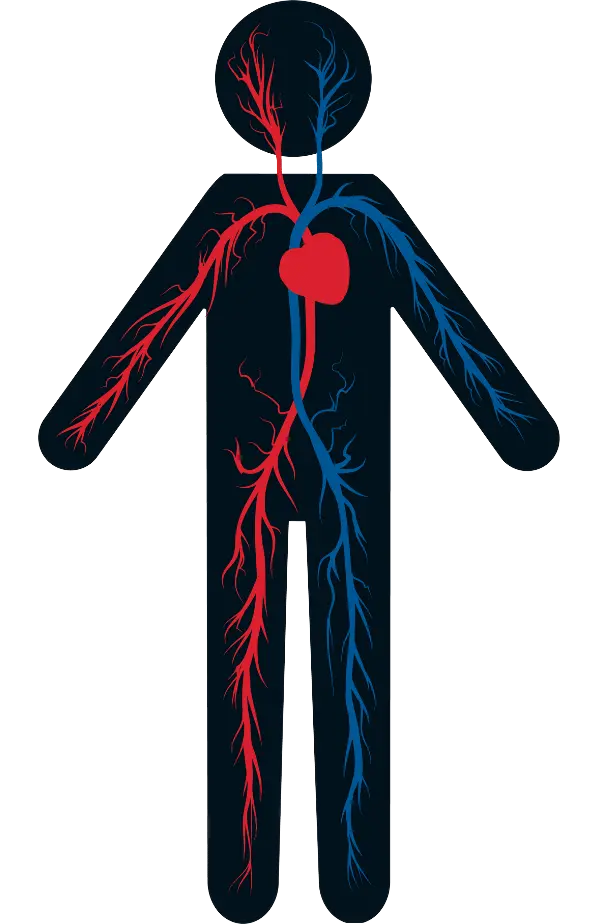
What are the symptoms of tinnitus?
The problem with finding symptoms for tinnitus is that tinnitus is actually a symptom itself. Tinnitus is usually the result of another medical condition, such as all the conditions we have already gone through above.
But if you are trying to figure out if the noise you can hear is tinnitus, we can go through some of the common themes of having this condition/symptom can manifest.
If we have learned anything so far, it is that tinnitus comes in many varied forms. The one thing that is common throughout is the fact that there is a sound that is heard that is not present outside of your body, and in most cases not even within the body but a malfunction of the hearing process to get information to the brain.
This sound may come as a persistent pitched ringing or a pulsating tone from the body’s pulse of blood flow to a whooshing like heavy wind. Maybe your sound only comes when you move your jaw. This is why investigation with a professional is necessary to investigate your particular symptoms for diagnosis and treatment or if treatment is not a possibility, then management.
That being said, let’s go through some of the more common symptoms and see what you can check off for your own experience.
What are the first signs of tinnitus?
The first sign of tinnitus is the notice of a ringing, buzzing, clicking, whistling, or hissing (or your particular form) sound that you can hear, but no one else can.
Have you ever come home from a concert or a nightclub to lay on your bed with your ears ringing in the silence? This sound may be gone by the morning, but this is tinnitus, although temporary in this case. It is a sign of damage, perhaps not yet bad enough to be persistent, but heed its warning.
Maybe you are watching TV, and you turn the TV off and the room goes suddenly silent, yet you can still hear a buzzing or ringing sound that should not be there with everything turned off.
Tinnitus does not need to be in both ears, it can vary just like with hearing loss. You can have tinnitus in just one ear, or both and to varying degrees. Perhaps you only play your music with one ear pod and the other free, but because you have a lot of sound coming through your bare ear you turn the volume up on your audio device to counter this and the result is when you remove the bud, you hear a ringing in just that ear. This is probably tinnitus resulting from sound induced hearing loss (SIHL).
If you do all of a sudden hear what I’ve described above then take a rest of your earplugs for a while, turn down the volume on your TV and see what the lowest volume you can use is, or even try closed caption along with a lower sound (You’d be surprised how much even people with normal hearing miss of dialogue in a movie).
It’s worth giving your ears a rest and you may be able to prevent further damage and even assist recovery.
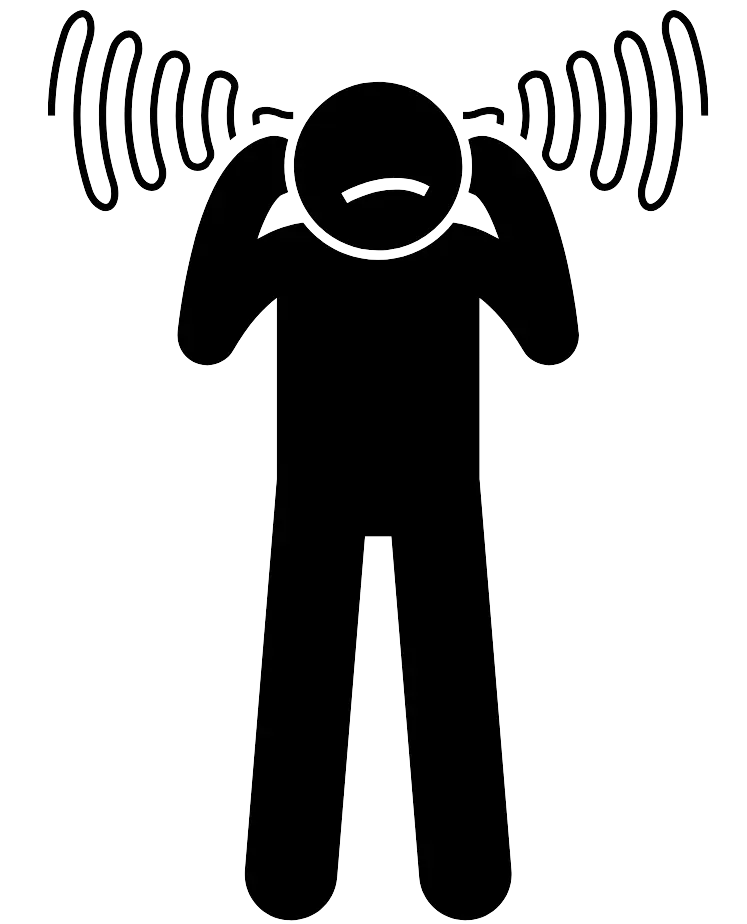
When to see an Audiologist about Tinnitus

Tinnitus can be a sign of an underlying condition, and therefore having your audiologist check you out for anything else that might be causing the issue can be a good idea and our suggestion.
Many people already have tinnitus but don’t even know it because it is not of a level they notice in day-to-day life. It can be thought of as just something everyone has when things go silent.
So, when it gets to a level that becomes noticeable in your day-to-day activities, and especially if you find you are all of a sudden having other symptoms and conditions, we suggest seeking medical consultation.
Stay Tuned Hearing on the Mornington Peninsula can address any concerns you may have with a hearing test in their Mount Eliza clinic.
What are the Causes of Tinnitus?
We have spoken about a lot of causes already, from trauma to medication and conditions. There are many causes, and not all of them are understood. This webpage is by no means an exhaustive documentation of them all, and consulting with your audiologist is always a good step in trying to find the cause of your tinnitus. But while we are here…
Let’s go through the more common causes that can put people at risk of developing tinnitus. These causes include:
Sound Exposure
Exposure to loud noise is one of the most common causes of hearing loss and damage to the cochlea hair cells.
Sound travels through the ear canal and vibrates the ear drum which then causes the waves within the cochlea. If these waves are too strong then there is a high risk of damage to the hair cells, or even the loss of complete frequencies if enough stereocilia are destroyed.
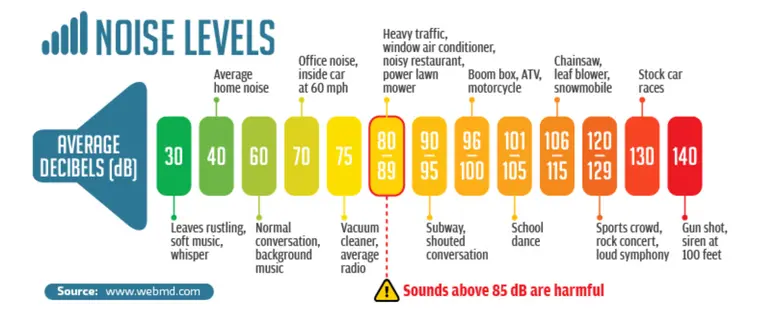
Medication
Ototoxicity means that something has the property of being toxic to the ear. Certain medications will have this warning as a side effect. Once experiencing the side effects of a drug, such as tinnitus, will result in a consultation to weigh the severity of the side effect against the severity and risk of the condition being treated. If the side effect of the drug outweighs its benefit, then the withdrawal of the drug may be warranted to remove the side effect such as tinnitus, or if the damage is already done, prevent further damage.
Let’s go through a few of the common groups of drugs associated with tinnitus side effects:
- Antibiotics – Antibiotics in the aminoglycoside class such as gentamicin and tobramycin can cause ear disorders as part of their side effects. If you are suspicious of your medication’s side effects for tinnitus, then look for terms such as ototoxicity, ear disease, and cochleotoxicity in the documentation of the drug. If you do start having tinnitus symptoms, the best thing is to let the physician treating you know of the side effect right away.
- Diuretics – Loop and thiazide diuretics have this possible side effect.
- Quinine & Aspirin – Quinine is used to treat malaria and babesiosis and nonsteroidal anti-inflammatory drugs like Aspirin for pain, fever, or inflammation. When these are taken in high doses the result can be tinnitus, but usually stops after discontinuation of the drugs.
Can chemotherapy cause tinnitus?
Chemotherapeutic agents that include platinum have been found to have cochleotoxicity (ototoxicity). Cisplatin and carboplatin are two such agents that have this side effect. Factors in the severity of this side effect can depend on dosage, age of the patient, and duration of administering the medication. Basically, these drugs can damage the cochlea hairs we have gone over earlier, often resulting in stereocilia death.
So, yes. Chemotherapy medication can cause damage to the inner ear, and in turn cause tinnitus.
Impacted Earwax (Cerumen)
An earwax blockage (known medically as cerumen impaction) can cause a few adverse effects, and one of these is tinnitus.
Earwax is used by the body to clean out your ear canal of unwanted debris including dead skin cells and whatever else has got stuck up there. So, when it comes across an object that is blocking its path, it will just keep coming and result in a blockage.
People are more likely to come across the condition of a blocked ear canal from wearing hearing aids, ear plugs, or earbuds for their media devices. In fact, it is estimated that between 60-80% of hearing aid faults are caused by earwax build-up, which finds its way into receivers and vents to degrade the device. So next time you have your hearing aid fitted, have your audiologist check your ear for any earwax build up too.
Age can also be a factor along with eczema and having lots of ear hair.
Stay Tuned hearing has the latest microsuction technology for removing earwax if you believe this may be the case for you.

Aging
An inevitable factor for tinnitus is aging. It happens to us all, and as the body ages, stuff… well, breaks down.
Being the most common cause of hearing loss, age-related hearing loss has its own name, presbycusis. With aging comes the degeneration of the cochlea and/or associated parts of the ear. The severity and onset of presbycusis can have many factors like genetics, and environmental exposure over your lifetime. So, with this degeneration comes the possibility of tinnitus.
Statistics predict that one out of three people aged 65 will experience presbycusis, and one out of two by age 75. The condition only comes second to arthritis in its prevalence amongst the aged population.

Have you ever heard about how adults are unable to hear certain pitches, yet younger children can? Well, this is part of aging and the effects of presbycusis, it starts within the higher pitch range the majority of the time.
Age-related hearing loss signs to look out for:
- Volume creep on T.V., Radio, and other media sources. Have you had people ask to turn something down in volume because it is too loud?
- Not being quite sure of the direction of sounds as you hear them.
- Conversations on the phone becoming difficult.
- Not catching or understanding everything said in conversations. This may be more likely with women and children with higher-pitched voices.
- Sounds and speech around you become muffled.
If you have any concerns and would like to have your hearing checked it is a very easy process, and if you are a pensioner, it is fully subsidised with Stay Tuned Hearing. Check out our webpage for all the details related to the pensioners hearing services program provided by the Australian government.
Thinking about a hearing aid? Check out our guide to different types of hearing aids. Stay Tune Hearing can assist in all your hearing aid needs starting with assessment, then fitting and maintenance.
Meniere's Disease
Tinnitus can be a symptom of Meniere’s disease, along with episodes of vertigo, and hearing loss. This condition usually starts with one ear but can over time affect the other ear. This is a fluctuating tinnitus that may happen in periods of approximately 20 minutes or so along with the other symptoms.
If you experience fluctuations of these symptoms, often preceding a headache and a full ear feeling, you may want to check with a physician on the possibility of this disease. You may also have to deal with secondary symptoms from vertigo such as nausea, vomiting, and sweating.
Suspect you have Tinnitus?
Let us check your hearing and get you some answers!
How is tinnitus treated?
Yes, I’m going to say it, even if you’re sitting there thinking, “It’s too late for that!”
Prevention is always the best treatment! There I said it, but this is true to prevent further damage. You may think things cannot get worse, but yes, they can and if you don’t take notice and continue with what caused the problem in the first place, it will.
Wear earplugs if you work at a place with loud sounds/noise as you work. You may start to notice those signs your business has for its workers to wear protective equipment, which usually includes earplugs. They don’t have those signs there for no reason, they know that there is sound above the range where it can cause damage and they don’t want liability.
You need to actively protect your hearing because no one else will.
Tinnitus Treatment
Tinnitus is a symptom of an underlying condition. To treat tinnitus, you will need to first understand which of the many conditions may be causing yours, and if a treatment to cure your tinnitus is even available.
Evaluate and treat underlying problems:
- Get a hearing assessment done with your audiologist – As you can see from this page, there are many causes of tinnitus. The overwhelming majority will be due to damage of the ear through aging or sound induced hearing loss, but a medical professional will be needed to rule out those other causes.
- Think about your short-term experiences with noise and sound – Perhaps you had not recognised that your workplace is actually louder than you thought, and at that decibel range, it is giving you some temporary tinnitus. Maybe it’s a new job or position that has put you in a loud environment. Did you recently have a large boom of noise around you? We often forget some events that may not cause immediately noticeable changes to our bodies.
- Consider your workplace – Be aware of safety signs warning of hearing levels and the use of safety equipment. It may not state it on the large print, but ear plugs/earmuffs may be part of that safety equipment. We often just subconsciously ignore such warnings, not thinking the sound is as loud as it is
- Use your phone to check environmental decibel ratings – Modern phones come with the ability through apps to read the decibel rating of sounds around you. Check your workplace, home, or venue of entertainment and be informed of the levels of volume your ears are receiving. You will be surprised how much noise in the environment around you can exceed the safe levels of 85 dB.
All of these points can help deal with some temporary tinnitus you may be experiencing before it becomes permanent, or to prevent tinnitus from getting worse.
Managing Tinnitus
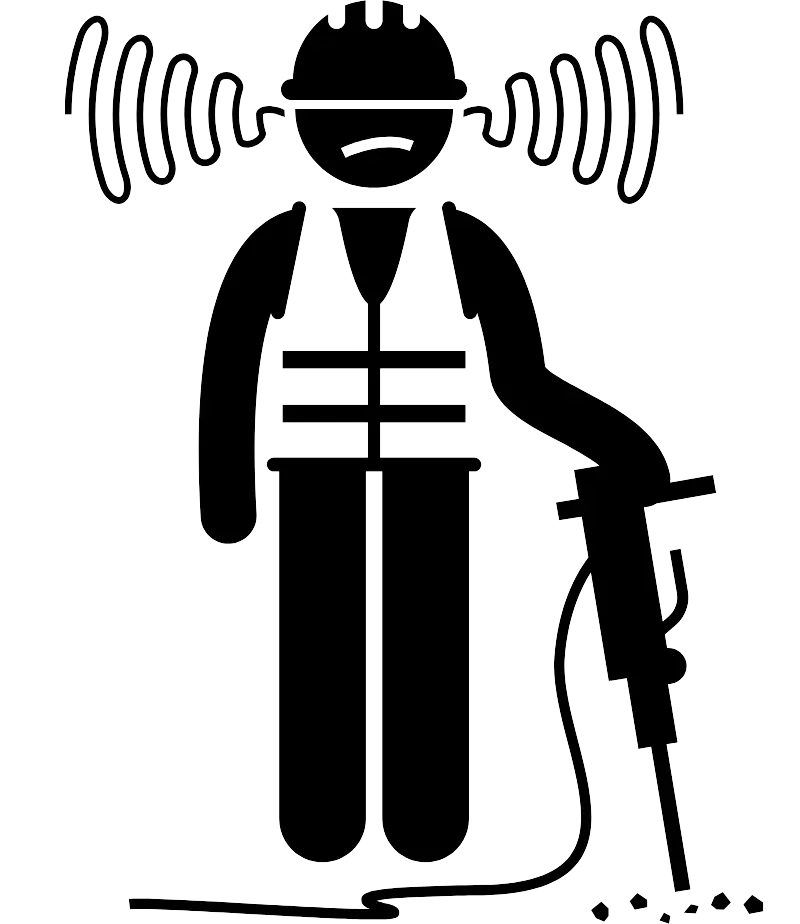

As I mentioned at the very start of this webpage, this can be a difficult time to navigate through emotionally. Especially if the damage that has been done to your hearing is not something that can be reversed.
Your first instinct will be to search the internet for those that suffer from tinnitus, so you can see how bad the situation is, and if there is hope. This can be a double-edged sword.
On the one hand, you will find people who are suffering or have suffered these first weeks or months just as you are now. You will find some solace in their stories and the ways that they have gotten through their struggles. But, on the other hand, it can be easy to fall into the despair of the many also coming there to look for a cure for tinnitus they might not find. So keep this in mind while you find these stories and if it starts to become too much, take a rest from looking things up a while.
In the first few weeks of having tinnitus, it can be hard. But know that it is very possible to lead a full and rewarding life!
The best thing that you can do when you first experience tinnitus, is to become educated about it, and well you are here reading this, so good job! Next is to have professional help by seeking out an audiologist who can assess your tinnitus and any underlying conditions and advise on ways to manage the symptom.
In the end, it will be up to you to decide what works, and what does not in managing your tinnitus.
Here are a few of the suggestions you may encounter:
Sound Therapy
Find what works for you!
The real goal here is to mask the sound that tinnitus makes by distracting your brain to focus on other sounds. This will be different for different people. You may find your technique that works every time, or you may need to rotate all of these, it will be different for everyone.
The brain has developed to have conscious awareness and subconscious awareness, and you can try to take control of this effect by having your brain put the sound of tinnitus into the subconscious category while your brain decides that something else is what you need to focus on. So, try a few out and see what works! Remember, what you enjoy is what your brain will decide is a priority in the ‘take conscious notice of this’ list!

Just think of all the sounds that you encounter in your daily life that you take no notice of, that fan you have running, the din of chatter in the office, and traffic outside your house. These sounds can be noticeable once introduced to them, but they soon go into background sounds your brain deems them not important. This is the goal for your tinnitus!
This may not be something that you don’t find so easy to start with, especially if you have only recently been diagnosed with tinnitus. But once tinnitus is no longer a mystery, and you are aware of the causes, symptoms, and treatments you can start the management journey.
I have come across patients who have had tinnitus for many years to one day say that it is gone. It can be a mystery why this can sometimes happen, but it is possible that just coming to terms with the condition and with it becoming such a constant presence the brain decides that it is not important to inform you any longer and shuts it out from your consciousness. The brain is a malleable thing, and it is possible for neuronal paths can shift over time to compensate for changes in the body.
Hearing Aids
Close to 80% of people who experience tinnitus also suffer moderate to severe hearing loss. So, it makes sense that manufacturers of hearing aids have sought to utilise the technology available in modern hearing devices. With the advanced technology of Wi-Fi and Bluetooth, it is not uncommon to have hearing aids be able to provide relief to tinnitus symptoms by helping mask the ringing in your ears with ambient white noise, meditation audio, and other customisable sounds to make tinnitus less noticeable.
Stay Tuned Hearing is an independent audiologist providing hearing aids of major brands that have the latest options for tinnitus management. If you are interested in a new hearing aid with this functionality, please call us on 03 9708 8626 to make an appointment today so that we can assess your condition and advise on providing you some relief.
Media
Maybe you are a documentary buff or have a hobby and can watch media about that topic all day long. Use what you love to distract your brain and muffle out the noise in your head.
Now, this is not to say you want to drown out the noise with dangerously high volume as this will only exacerbate the problem. But a healthy volume that can allow you to hear the media and also challenge your attention from tinnitus is a good option.
Try and take notice of what you are doing in those moments throughout the day when you have not even noticed your tinnitus. What were you doing; what subject did you delve into and what media did you use?
Here are a few suggestions to try out:
- Audible Books – Most audible book services will allow you to test out the app with a free book, why not give it a try and find something you are interested in? If tinnitus is keeping you up at night, play the book on your phone and lay it on the bed to listen to.
- ASMR – Autonomous Sensory Meridian Response (ASMR) is not as strange as you may first think. Many people experience this effect when listening to certain triggers and types of ASMR. There are a lot of different types, from soft-spoken book reading to scratches on a microphone to visual movements on screen. This can be great for tinnitus distraction as it can have a visual component too as you watch.
- Video – Much like ASMR, but the video can be of anything. Maybe a film that makes you feel calm, or a YouTuber that you share a hobby with.
- Documentaries – Who can resist the tone of David Attenborough explaining the mysteries of nature?!
- Ambient Soundscapes – Listen to the rainfall, or crickets … cricket, or maybe a storm roll in, ambient sounds can be relaxing and mask your tinnitus.
- Music – Music may be what got you here, but it’s what you love. This can be a great way to mask tinnitus with your favorite bands (Just as safe levels!).
Found something not listed here that works for you? Let us know in the comments!
Psychological Effects & Counseling
Tinnitus is tough on a person psychologically and emotionally. It can be relentless, and that can wear a person down.
If you are feeling like you are losing the battle against tinnitus you should reach out to get some help. Remember that even though you may lose that battle, you can still win the war!
The effects of tinnitus can cause:
- Anxiety
- Depression
- Stress
- Sleep Issues
- Concentration issues
Some of these things, like anxiety and stress, can actually fuel the tinnitus to be more pronounced as you focus more and more on it, easily becoming a vicious loop.
If tinnitus is preventing you from normality in your daily life, take action and seek out counseling for your mental health.
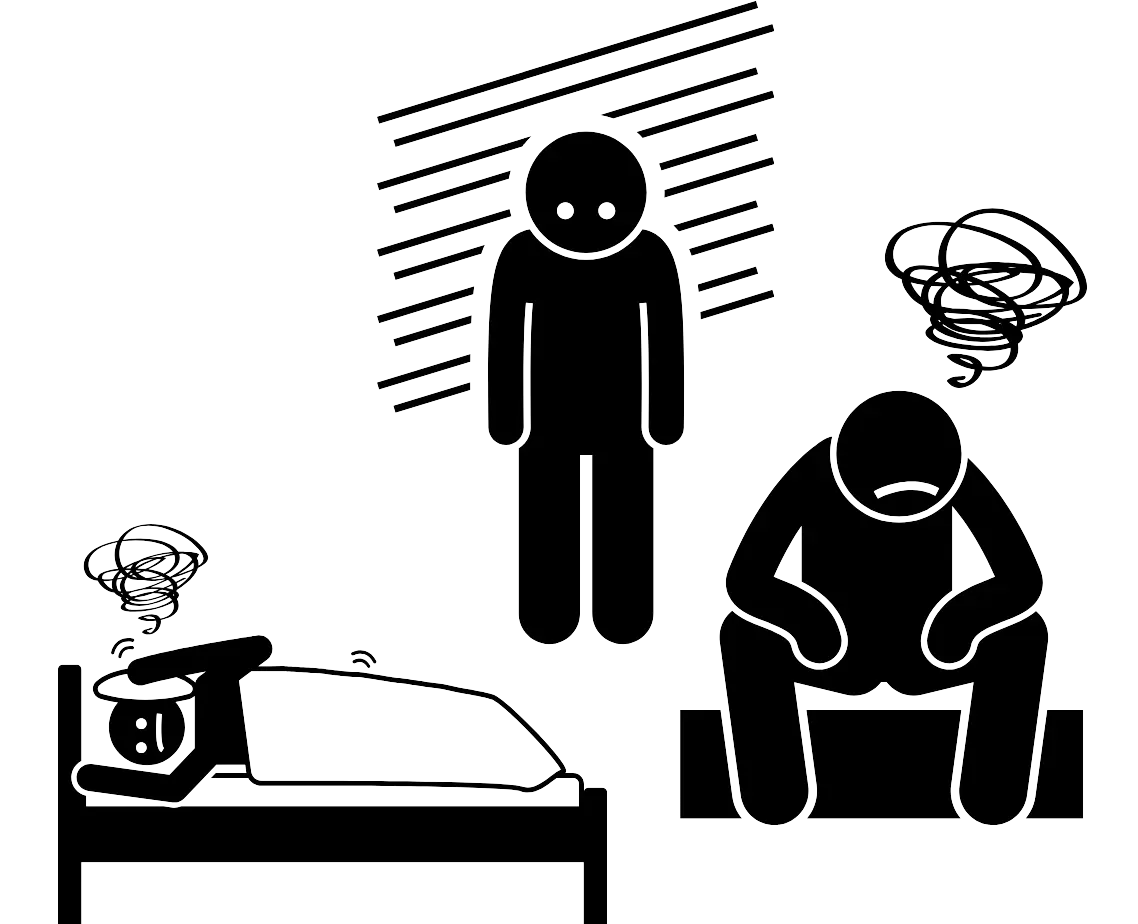
Tinnitus Retraining Therapy (TRT)
Tinnitus retraining therapy is training that a professional can guide you through to achieve habituation for your tinnitus. Much like already described, we want to train the brain to not pay unwanted attention to sounds like the noises in your ears and become diminished.
This kind of therapy has a close connection to cognitive behavioral therapy (CBT) which is a more commonly known and popular process to deal with these types of issues.
Hyperacusis
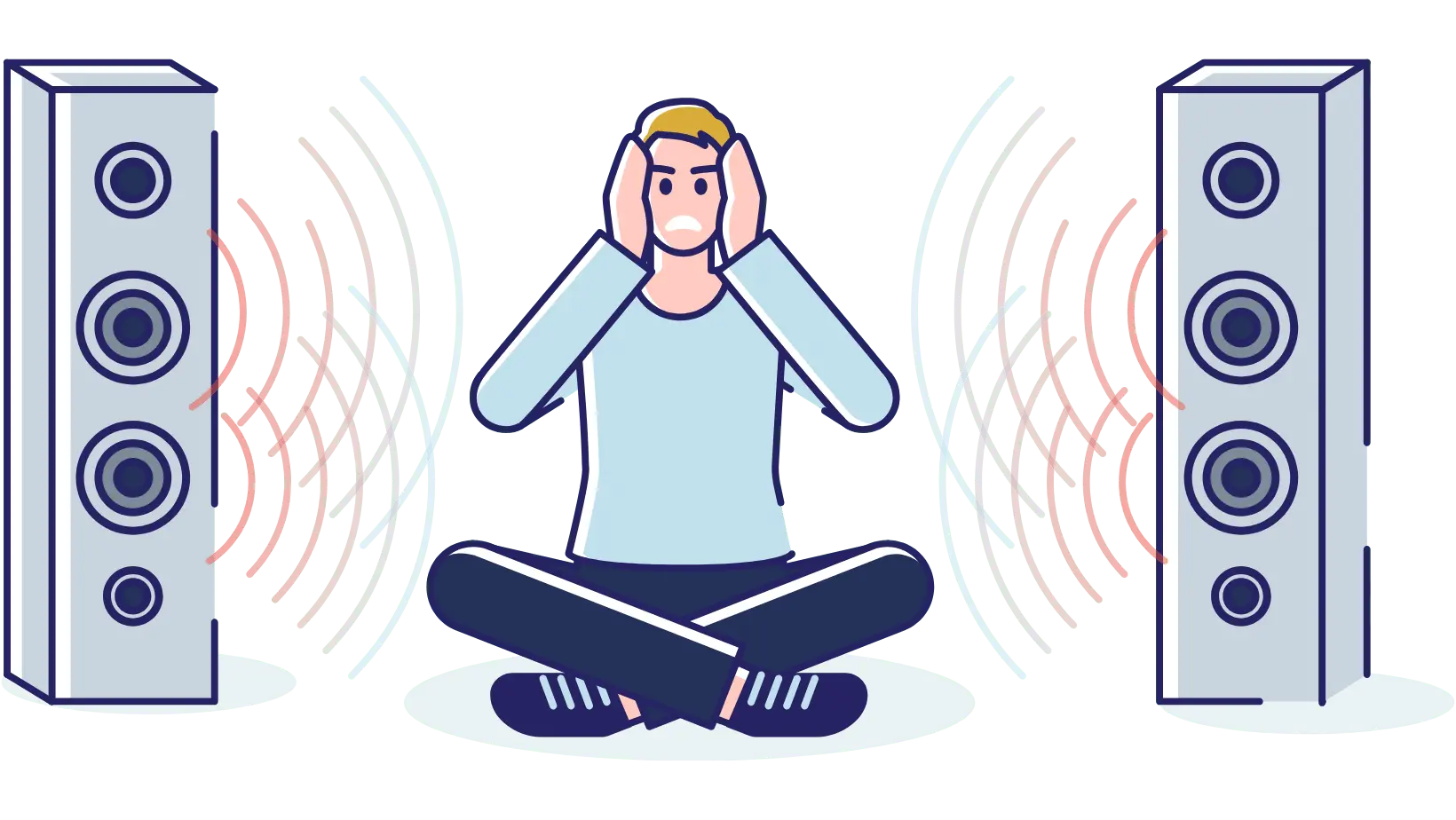
Hyperacusis is an increased sensitivity to sound, along with a low tolerance for noise in your environment.
Tinnitus and hyperacusis can sometimes go hand in hand. As you become more aware of the sounds around you and how this affects your perception of tinnitus it may make tinnitus more noticeable.
This is not such a bad thing; you are just becoming aware of the volume you are exposing your ears to and wanting to monitor it so as not to make your tinnitus worse. This can result in sensitivity to volume that may result in tinnitus episodes. But protecting your ears is a natural reaction after you have been diagnosed and fear to cause or worsen tinnitus.
Medications for Tinnitus
Unfortunately, there are no proven medications effective for tinnitus directly.
There can be medication for underlying conditions found during your diagnosis of tinnitus linked to a medical cause other than irreversible hearing loss damage.
You may still find a lot of Alternative Medicine options on the internet, or testimonials from (supposed) sufferers in what they have used. Approach these ideas with caution and consider that they are not medicine, but an alternative to medicine.
People with tinnitus can become desperate to alleviate their ringing or other noise, and when there are desperate people, there are also those who would take advantage of that desperation. So, if you hear about an alternative to medicine that will cure tinnitus, it is a sign of something too good to be true.
Neuromodulation
Something still being tested and trialed is Neuromodulation.
Neuromodulation for tinnitus is when an external source of magnetic, or other method, creates stimulation for neurotransmitters to send signals to the auditory cortex of the brain.
With the results very mixed and without any substantial evidence to show definitively that neuromodulation is a success, there is still a lot of research to be done in the area. There have been some promising results for some, and it is something to keep an eye on to see how things proceed in the future.
Here is a video on the subject: What is Neuromodulation and how does it help tinnitus?
Here are some studies to read if you want to go deeper:
State of the art: non-invasive electrical stimulation for the treatment of chronic tinnitus
Dual-site transcranial direct current stimulation to treat tinnitus: a randomized controlled trial
Self Care for Tinnitus
Meditation or some other form of relaxation can help alleviate symptoms of tinnitus. This could be perhaps as easy as a relaxed walk in the park or around the block to get your mind off things.
Don’t be hard on yourself and focus too much on fixing your tinnitus. This could end up doing the exact opposite of what you are trying to achieve and feeding the symptom with constant attention.
If you do not feel you are getting results fast enough, remember that this is a long-term thing and there will not be any shortcuts. Getting angry, or sad can be normal, but don’t let it consume your thoughts and emotions.
Instead, try to go out and get a new hobby or focus more on the hobby you already have.
Ear Protection – Protect your ears and wear earplugs at that concert, or while you work.
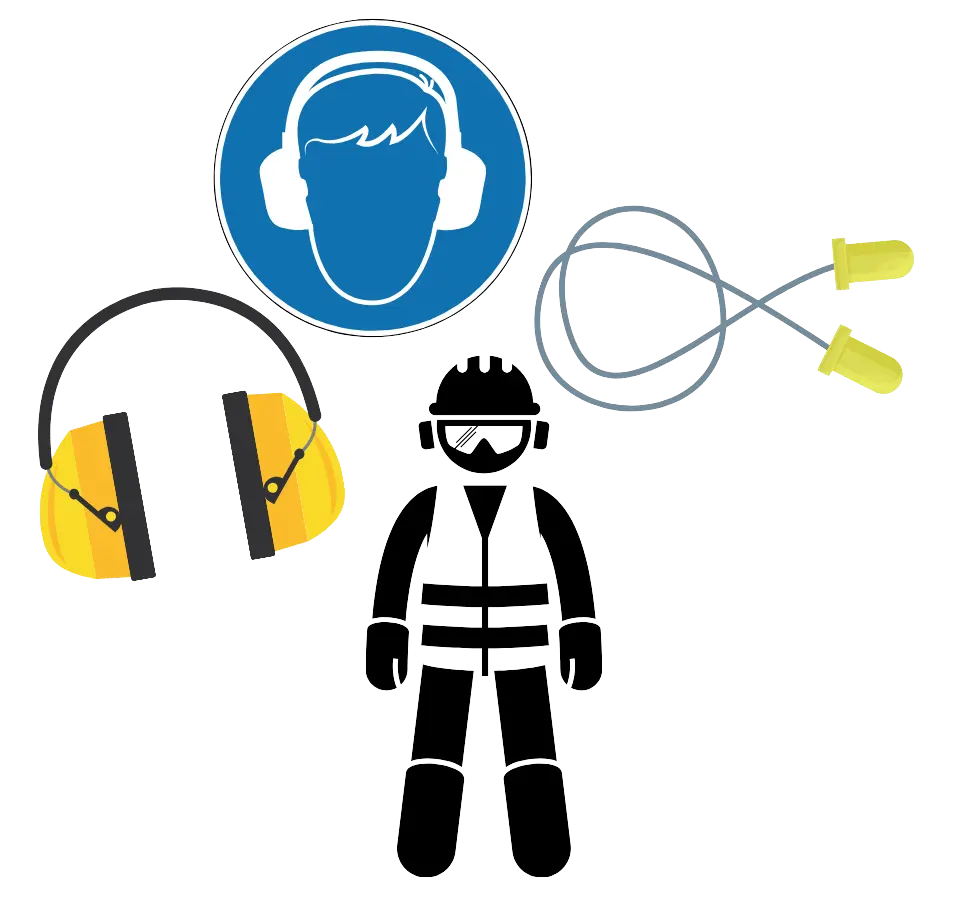
Activity – Keep active. Even small things to get out of the house can help with your mental health and in response help with your tinnitus.

What should I avoid if I have Tinnitus?
- Loud prolonged noise exposure! – I mean, it’s probably how we ended up here, and it can be how your tinnitus can get worse. Be aware of the media device noise levels you are exposing yourself to through your headphones. Don’t forget that headphones can be deceptive due to the concentration of the noise. It’s advised when able to keep the volume well below recommended limits to be safest when you can.
- Smoking – Smoking can affect the narrowing of blood vessels and affect blood pressure. Many studies have found a correlation between smoking and tinnitus, but the causational link is still unknown.
- Diet – Some foods can have a temporary effect on your tinnitus. This could be caffeine that may increase your anxiety for example. Basically, foods and drinks (including alcohol) that elevate blood pressure can be ones to monitor.
- Stress – Easier said than done, I know. But stress, tinnitus, and anxiety are not a good mix. Try and remove some of the more stressful things in your life and even reach out to a professional for help with your mental health and ways to manage stress.
Resources and Support
Let’s end with how we started.
YOU ARE NOT ALONE!
There are many places you can find for support, like official places such as:
Tinnitus Australia – Home – Tinnitus Australia
Beyond Blue – Beyond Blue | 24/7 Support for Anxiety, Depression and Suicide Prevention
Or just places where others, like you, are just trying to find their way through all of this.

Stay Tuned Hearing Clinic
At Stay Tuned Hearing your wellbeing is our highest priority, so let our Audiologist bring you some peace of mind if you are suffering from tinnitus. We’d love to hear from you and help you on your journey to recovery.
If you would like to book an appointment at our Mount Eliza Clinic or book a home visit, please follow this link to see the ways you can contact us.
Robin brings with him over 20 years of experience in audiology education, so you can be rest assured that you are in capable hands.
Frequently Asked Questions
Can tinnitus go away?
Yes, it is possible. Here are likely scenarios where tinnitus may go away:
- A night out at a concert has you hearing a ringing sound when you try to sleep that night. Usually, this will be gone by morning.
- There is an underlying medical condition that is causing the tinnitus that can be treated medically.
- Over a long time of having the condition some report it just going away. Usually, this is something that happens over years of already having the condition, and it is not so much that anything is fixed, just that your brain stops paying attention to it.
Does tinnitus get worse?
Tinnitus will only get worse with inaction. Meaning that if there is an underlying medical issue causing the ringing in their ears and you have not sought medical professionals to address the condition, then the possibility is the worse the condition becomes, the worse tinnitus becomes as well.
Or if you continue to cause damage to your hearing, then your tinnitus could definitely get worse. Remember, once damage is done to your hearing, that’s it. There is no way to regenerate cochlea hairs once damaged or destroyed for mammals.
But, if you take care of your hearing once you have started to recognise you may have tinnitus, then it does not need to get any worse, and may even get better!
Do tinnitus maskers work?
They do, but with any treatment or management technique, it will be up to the individual to figure out what works best for them.
Can anxiety cause ringing in the ears?
Anxiety can definitely make existing tinnitus worse, but it is unlikely to be a cause itself.
How is tinnitus diagnosed?
A lot of diagnosis of tinnitus is done from the self-reporting of patients. As the audiologist cannot hear subjective tinnitus, they can only explore possible underlying conditions to find what may be causing the issue. It is very common for the audiologist to find that the patient suffers from hearing loss which is generally seen as a causation for the tinnitus symptom.
Are tinnitus and vertigo linked?
Tinnitus by itself does not cause vertigo, but it can share in being a symptoms alongside vertigo to a condition.
For example, Meniere’s Disease has the symptom of both tinnitus and vertigo. So, in this way, they can be linked to each other. There can also be some chemotherapy medications that can have side effects where vertigo and tinnitus are both present.
Why is tinnitus louder at night?
Without having sounds from the environment around you to take your brain’s attention, and essentially masking the ringing in your ears, you will hear what feels like a louder noise. When you hear your tinnitus at night, it is not louder, but more prominent with no other sounds to compete with.
Does tinnitus from chemotherapy go away?
The ototoxicity of platinum-based chemotherapy drugs is a side effect that can cause permanent damage to the cochlea. If the damage is already done, then the level of tinnitus already experienced will most likely be permanent. As soon as you start to experience this side effect it is a good idea to speak with your medical team dealing with your cancer and discuss whether withdrawal from the drug is the best option or not.
How can I have tinnitus but no hearing loss?
Hearing loss is among the most common causes of tinnitus, but it is not the only one. There can be other medical reasons for the loss, or neurological abnormalities. Be prepared to not know the reason or cause as a possibility also. Sometimes there can be no cause found or it can take time to find the specifics out.
Who do I see if I have tinnitus?
Either your local GP or Audiologist is a good choice to start. If you visit an audiologist, they will be able to assess your hearing and give you the first clue as to what may be causing the issue. This may lead to an ENT (ear, nose, throat specialist).
Can wisdom teeth cause tinnitus?
There does not seem to be any hard evidence that wisdom teeth cause tinnitus directly. There are theories that impacted wisdom teeth may cause inflammation which could add to complications of temporomandibular joint disorders (TMJ). It would be best to speak with your audiologist before considering wisdom teeth removal surgery based on this assumption.
What are the best hearing aids for tinnitus?
Hearing aids that have the functionality of using apps designed to help mask the sound of tinnitus are best. Some are more customisable than others with the ability to mix various sounds for your own personal white noise.
Is tinnitus curable?
It really depends on whether you have an underlying condition that can be medically treated and in effect cure you of the symptom, tinnitus.
There is no quick-fix cure for tinnitus otherwise. Beware those that advertise alternate medicine to this effect.
Do tinnitus ear drops work?
They don’t for tinnitus directly, but they can for an underlying condition like an ear infection. You see these drops are to treat ear pain, ear drainage, and ear infections falling into the class of antibiotics.
If you do not have any of these conditions then this will not relieve symptoms of tinnitus unfortunately, no matter the name of the product.
What is the best way to deal with tinnitus?
Get informed! You need to know all about the condition and what kind of tinnitus you have and what has caused it for you. Once you know these things then you can work to make sure that you will not make it worse while looking at ways to manage and live with tinnitus.
What can I do if my ears are ringing after a concert?
Rest up and more importantly let your ears rest! Don’t expose your ears to any more damaging levels of sound, and heed this as a warning before it one day becomes permanent.
Who diagnoses tinnitus?
An audiologist can diagnose your tinnitus, or if not them, then an (ear, nose, throat) ENT specialist. It really comes down to the cause of the tinnitus and which profession is going to have the speciality to diagnose that condition.
Do hearing aids reduce tinnitus distress?
Hearing aids can help tinnitus by using tinnitus sound therapy technology and masking the sound through various options available to your hearing device.
